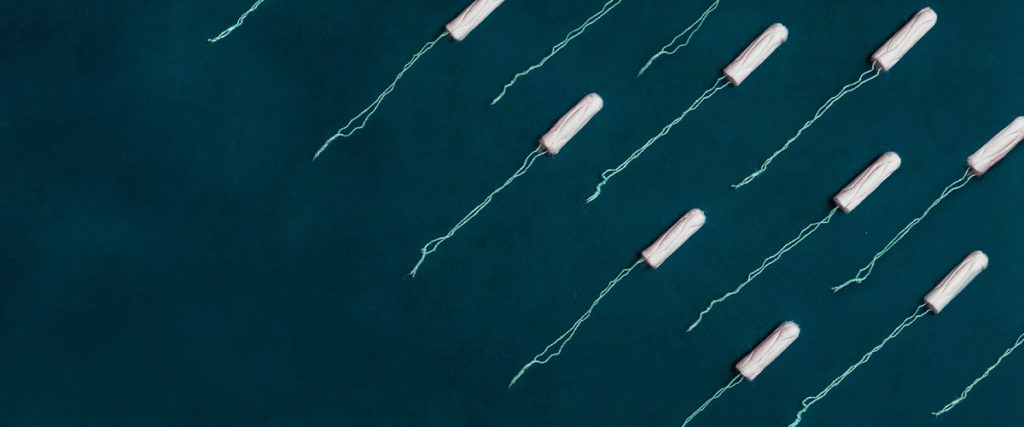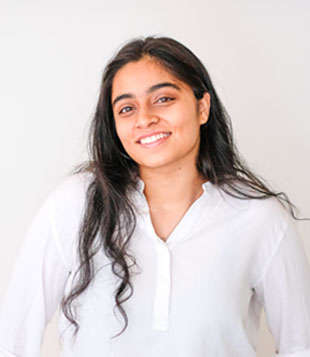Meet Olivia, the founder of LUÜNA Naturals. She’s created an education-driven company that wants to set women free from century-old stigmas surrounding periods in Asia.
A woman menstruates for a lifetime average of 2,535 days in her life, a number that equals to about seven years, yet ‘period poverty,’ the lack of access to sanitary products and menstrual hygiene education, concerns more than 800 million women and girls around the world every day. A deeply neglected issue in many corners, it can lead to women being excluded from society, dropping out of school or being deemed unfit to work. In Hong Kong, Olivia Cotes-James, Founder of LUÜNA Naturals, is trying to make up for the lack of education surrounding menstrual health and access to trusted period-care products by providing organic sanitary products that retail for under HKD 55 alongside regular talks and workshops. She talked us through what she sees as an extremely necessary revolution.
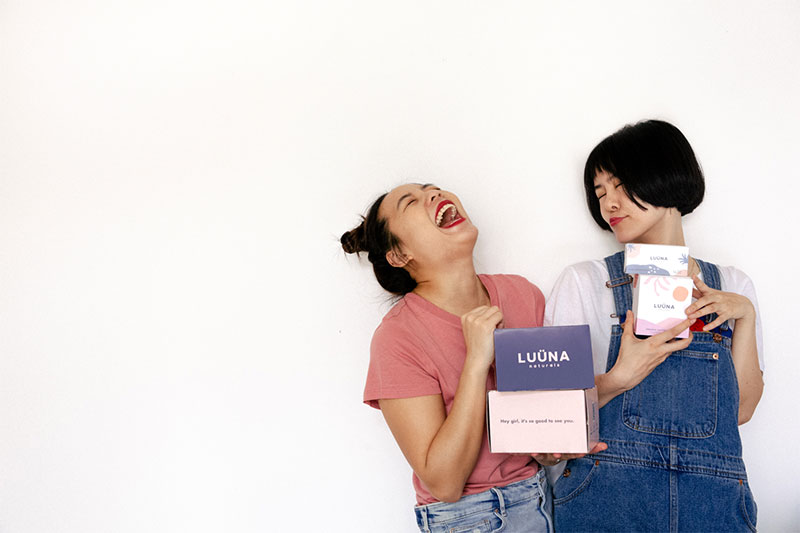
Olivia moved to Hong Kong in 2013 from the UK and, over time, grew frustrated by the lack of access to tampons in Greater China. “I started to be really unsettled by the fact that women here, particularly my friends who used tampons, would bring suitcases full of products from abroad. It wasn’t until the Chinese Olympic swimmer Fu Yuanhui went viral for talking about how her period had affected her race time that I started having conversations with them. Over time, we learned that one in four women in China would say that their period negatively affects their lives every month. They would stop exercising and socialising in their personal and professional lives. They are inhibited every single month. That’s a pretty profound problem.” And it’s not one being discussed. The whole subject of menstrual health is not deemed fit for open conversation – on Chinese TV, advertisements for feminine hygiene products are banned during prime time and lunchtime. Olivia started hosting gatherings in both Hong Kong and Shanghai of ‘forward-thinking women,’ running workshops such as #NoMoreSecrets: Body Image BS, a partnership with influencers in Hong Kong. Having joined the conversation, next, she decided to deliver the product those discussions were calling for.
You might also like Plus Size Fashion: The Booming Retail Trend HK Is Missing Out On
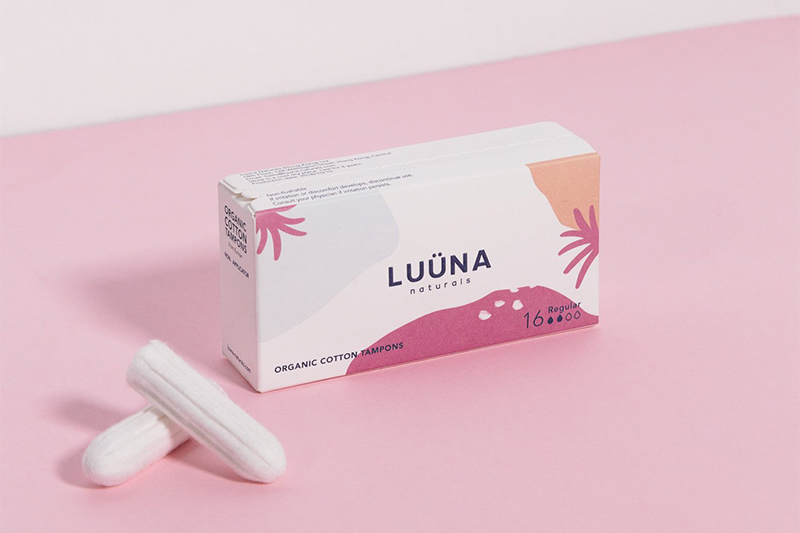
Olivia launched LUÜNA Naturals in March 2019 in Hong Kong. “In China, there is still a really disconcerting lack of transparency,” she explains of the existing product offering. Additionally, she has had her own experiences with conventional products. “I’ve had irritation and I assumed that I was just unlucky all these years. When I switched to organic cotton, that irritation immediately went away. So, at that point, it wasn’t only about holding educational workshops. It was also about creating a company with a purpose of transparency and providing healthy products that women deserve. We hope that by inspiring an initial community, they will then go on to inspire their friends who are perhaps more conservative, and see organic growth in that sense.” Given the exponential growth in the organic sanitary care market, it’s a conversation that could also lead to significant commercial success as women become more aware of the risk of chemicals (like pesticides, dyes and bleach) found in conventional period care products.
Tampons, in particular, have been around for a whole century but barely 3% of Chinese women use them; in Europe and the USA, the figure is as high as 70%. In 2015, 85 billion pads were produced in the country, but not a single pack of tampons was manufactured.
LUÜNA Naturals wants to break into the market with a sourcing process unlike anyone else’s in the region. “We work with Global Organic Textile Standard, an organisation that sources ethically-produced organic cotton from farms around the world. They ensure that the cotton has been grown without dangerous chemicals as well as the fair treatment of workers. We look at supply chain transparency and how that impacts people along every stage of the production process. Beyond that, we do not use chlorine, which is a very dangerous chemical, used by other brands. They currently retail online and at Just Green, Sally Coco and Spice Box Organics.
The real challenge for LUÜNA Naturals has proved to be less in figuring out production than it is in breaking down stigmas. There are many barriers to acceptance in China, starting with a serious lack of sex education. “I shared a LinkedIn post which explains a little bit about the signage that we use at our pop-ups both in English and Chinese – about keeping vaginas chemicals free,” recounts Olivia. “People saw the direct term for vagina as a faux pas. It’s in those moments you really see how strong the taboos around women’s bodies and menstruation are. Ultimately, people will come to realise that it’s silly that this sort of grossness has been ingrained in them. It’s actually enormously damaging to women’s lives.”
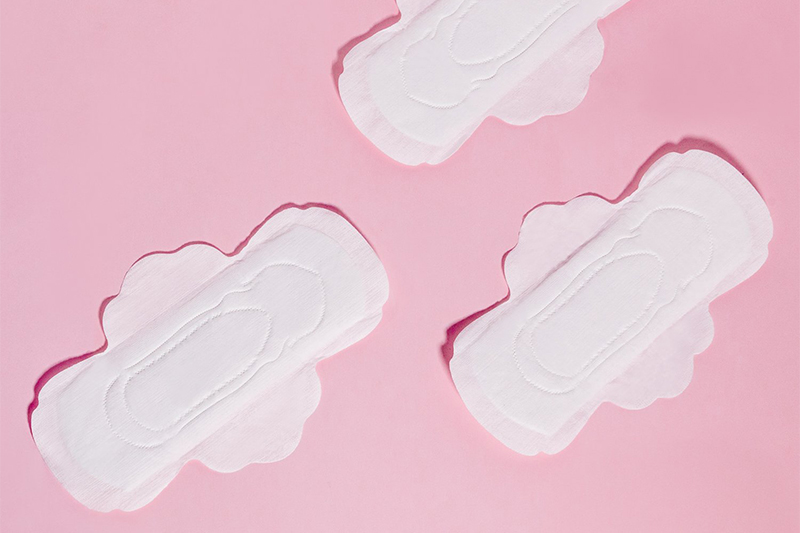
To keep change happening, LUÜNA Naturals will continue to develop both products and the conversation. They’re currently developing a line of silicone menstrual cups, which will be released on 15 July on Indigogo as a part of their buy-one-cup, give-one-cup initiative. Olivia explains, “What’s really special about this launch is that we’ve partnered with FreePeriodsHK and pledged to donate one cup to a woman or girl in need for every cup sold. It’s ambitious, but our goal is to donate 1,000 cups by the end of August 2019!” In addition, they have also started a subscription service as a way to conveniently access their product line with free access to their community events around Hong Kong. “Education is the foundation of LUÜNA. We’re looking to bring about generational change and we need to educate women now so that they can educate their daughters and so on and so forth. With that focus, we create engaging content for schools and social initiatives to change their approach to the topic of menstrual health.” It takes vision and strength to do that, especially when you’re facing cultural norms and a society with an ingrained resistance to even talking about these things. For Olivia, however, giving in is simply not an option. “Don’t pander to taboos. Be respectful of them in terms of how you approach them. You have to create a safe space for women and girls to be able to talk about their periods. Only then will you have the ability to change their lives in a significant way.”
Related Articles
Breaking Down Biohacking: Silicon Valley’s Hottest New Health Craze
Wintercearig: Tackling Mental Health Issues Through Creativity
One Man’s Journey: Changing How We Talk About Men’s Mental Health
